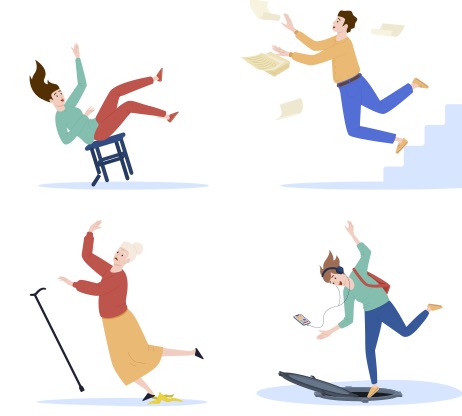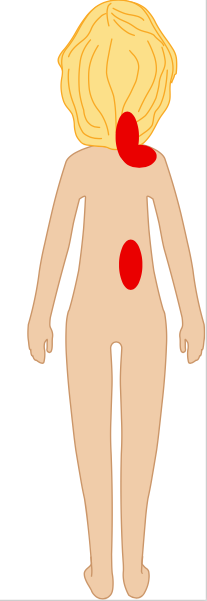TRAUMA 2 – Becoming Aware of Possible Undiagnosed Problems
 In the previous blog on Trauma, we became aware that injuries can cause obvious and not so obvious problems.
In the previous blog on Trauma, we became aware that injuries can cause obvious and not so obvious problems.
With attention paid to the problem and proper acute management (ice, rest, gentle exercise, a gradual return to daily activities), non-complicated injuries in an otherwise healthy body will resolve within a short period of time.
Two weeks post trauma, we need to re-assess.
Are we able to do all our normal activities, or do we feel confident that we will be able to do so?
It is still important to maintain contact with your family doctor. He/she may have to assist with further medical investigation as well as insurance and work-related claims.
BUT – If you have sustained a fall, hit your head during sports, or were involved in a motor vehicle accident (this could be any injury involving a moving vehicle, including being hit as a pedestrian), it is important to be even more aware of possible problems that may need further medical investigation.
AND – Sensations or feelings that are unusual must be followed up, such as:
- Dizziness, nausea, a spinning feeling (vertigo)
- Difficulty focusing when using a computer, watching TV, or reading a book
- Balance problems
- Memory and concentration problems
- Feeling stressed or anxious all the time
- Pain in the jaw and facial muscles
- An inability to put your teeth together
- Unusual soreness in muscles and joints
- ANY FEELING that is not your usual, including PAIN
And as you continue to recover, it may be a good time to ‘get to know’ your body.
What is YOUR normal?
Are you able to manage your physical or emotional problems on your own?
Can you tell when some part of your body is not functioning well? Can you differentiate between the different sensations you may be feeling?
As you are recovering, it may also be the right time to learn how to do a BODY SCAN- a technique that can be useful to get to better feel and understand what your body is telling you.
Pay attention to the different parts of your body and their bodily sensations in a gradual sequence from feet to head. By mentally scanning yourself, you will become aware of every part of your body noticing any aches, pains, tensions.
There are many health professionals who can assist with recovery from post- traumatic injuries.
Although a medical referral is not always required to make an appointment with these practitioners, it is a good idea to speak to your family doctor about your concerns.
If recovery takes time, it is likely that insurance forms or possible contact with a lawyer may be necessary.
Initial contact is often with a:
Physiotherapist ( https://www/collegept.org)
Chiropractor (https://cco.ca)
Regulated massage therapist (https://www.cmto.com)
Osteopathic manual therapist (http://www.compontario.com)
Depending on injuries or concerns, more specific investigation and treatment may be required other health professional, including:
- dentist or oral surgeon,
- ophthalmologist or optometrist
- speech-language therapist
- occupational therapist
- psychologist
Your goal is to ensure that you recover fully and can resume all your usual physical activities.
Some injuries may be long lasting or can permanently affect your life. It is important for you to maintain contact with appropriate health professionals who can assist you to recover and function as best you are able.



